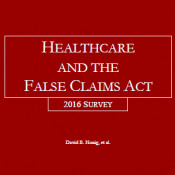Dykema has added government contracts attorneys John C. Dulske and Bryan Kost to its Government Policy & Practice Group in the firm’s San Antonio office. Prior to joining Dykema, both practiced at Dulske & Gluys in San Antonio, which Dulske formed in 2002.
In his practice, Dulske, who joins the firm as senior counsel, focuses on federal procurement litigation, contract administration and claims litigation, as well as bid protest work, including a mix of administrative and appellate work. He has been actively involved in trial practice in San Antonio and South Texas, with experience in both State and Federal Courts, including the United States Court of Federal Claims in Washington, D.C.
Dulske received his J.D. from St. Mary’s University School of Law, and a B.A. in Economics from Kenyon College.
Kost, who joins the firm as a senior attorney, also focuses his practice on federal procurement litigation, contract administration and bid protest work before the Government Accountability Office, the U.S. Small Business Administration and the United States Court of Federal Claims. He has also maintained an extensive trial practice spanning 24 years in both Texas State and Federal District Courts.
Kost received his J.D. from St. Mary’s University School of Law, and a B.A. in American Studies from the University of Texas at Austin.
“John and Bryan’s vast government contracts experience immediately strengthens our Government Policy Practice,” said Sandi Cotter, Director of Dykema’s Regulated Industries Department and Leader of the firm’s Government Policy & Practice Group. “Their expertise in this important field will greatly benefit Dykema and our clients.”
“We are very excited to add such well-regarded attorneys to our San Antonio office,” said Dan Harkins, Office Managing Member of Dykema’s San Antonio Office.
Join Our LinkedIn Group









